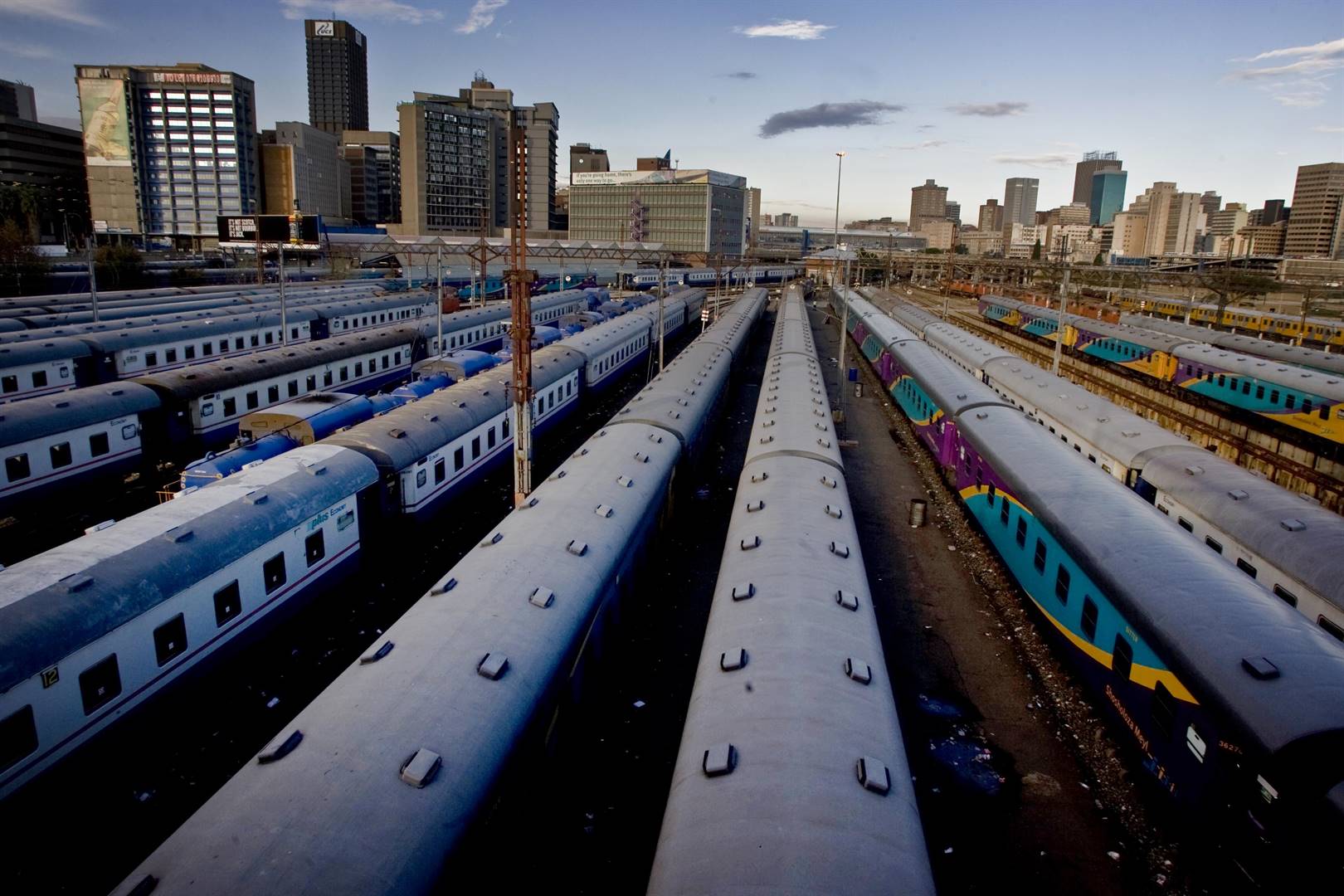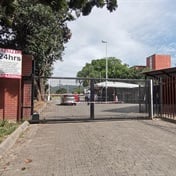
The shortage of brake blocks is not the only problem. The rail utility is falling apart as it does not have oil to lubricate wheels, coach windows are missing and wiring has been stolen
Passenger rail agency Prasa has until Tuesday to submit plans on how to stock up with much-needed brake blocks for Metrorail trains – or face the music.
Should it fail to do so, executives and the rail company could be fined or sentenced to up to 15 years in jail.
This is the message sent by the Railway Safety Regulator (RSR) to Zwelakhe Mayaba, a manager at Prasa Rail, on January 22, following the regulator’s impromptu and unannounced inspection of Prasa’s rolling stock maintenance facility in Braamfontein, Johannesburg, on January 16.
In the letter to Mayaba, Deon Bouwer, the RSR’s inspector for central region compliance, noted that the inspectors found that:
- Prasa has no new brake blocks available or in stock for the replacement of worn brake blocks on its train sets; and
- In view of the above, the RSR “hereby issues an improvement directive to Prasa in terms of section 36 of the Act [referring to the National Railway Safety Regulator Act], which provides that ‘if a railway safety inspector believes that a condition is a threat, or might be a threat, to safe railway operations, the railway safety inspector may issue a directive to any person responsible for the condition or activity to the effect that action be taken within a specified time by the person concerned to remove the threat’”.
Bouwer then demanded Prasa submit a corrective action plan by Tuesday, and that such a plan should contain “a permanent solution to provide an adequate number of new replacement brake blocks at each of their rolling stock maintenance facilities for installation on their rolling stock when the said blocks are worn out. Prasa shall keep auditable evidence showing that all trains sets that are in use have brake blocks that are within the wear limits.”
Failure to comply with this improvement directive, Bouwer warned, would result in section 45 of the act being invoked.
This section of the act says that those who have transgressed the act can be fined or jailed for up to 15 years.
While the regulator’s inspection was conducted in the Braamfontein facility only, a Prasa service provider – who spoke to City Press on condition of anonymity – claimed that, with the exception of Durban, Prasa had not bought brakes in the past six months.
COMMUTERS’ LIVES IN DANGER
Braamfontein is one of Prasa’s biggest maintenance facilities across the country, servicing Soweto, East Rand, Vereeniging and West Rand lines.
The supplier said the agency “uses up to 1 500 brake blocks a month, and in the last six months they haven’t ordered anything”.
The supplier added: “It is really a miracle that there has not been any train accident. Operating a train without brake blocks is like operating without a heart. If a train does not have brake blocks, it cannot stop. It is pretty much like running a car without brakes.”
A Prasa technician, who witnessed the RSR inspection and spoke on condition of anonymity, claimed that most of the agency’s trains were “unrailworthy” because they did not have brakes and windows.
“We have not bought brakes in a long time because we do not have money. None of the trains running here has brakes within the wear limit. When the brakes are finished, we remove them and replace them with sets that are worn out and equally bad, but better.”
Braamfontein was running a reduced fleet of 32 trains instead of 114, the technician claimed, adding that the reduction of the fleet had happened gradually over the past two to three years.
“The situation obviously became worse over the last six months since we simply cannot run coaches without brakes,” he said.
“We have over 300 coaches lying around here in need of wiring as cables have been stolen, and windows and doors have been ripped apart. In Cape Town, Metrorail has reduced its fleet from 104 to 33.
“The situation is not bad; it is very bad. About a month ago, in Cape Town they had replaced more than 1 000 windows in one weekend. But they are all gone and need to be replaced again.”
It was a matter of time, added the technician, before Prasa was forced to completely stop all operations.
“We do not have spares and basic things. We did not have crater oil for the longest time. Crater oil is a lubricant that we use to lubricate the wheels. They did not order it. Not having crater oil means trains cannot run because there is no lubrication on the wheels. You cannot run a train without lubrication.
“We do not have any spares here, no crater oil, no brake blocks, no wheels and no windows. The cranes we use have not been repaired in months.
“It is not safe and it is dangerous, you know.”
Prasa spokesperson Nana Zenani did not respond to questions sent on Friday.
PRASA TERMINALLY ILL
In December, Transport Minister Fikile Mbalula axed the Prasa board and the chief executive officer, and placed the agency under administration because it was “broken”.
A 2020 to 2022 corporate plan for the agency shows that the current service levels and general performance were 50% below what they were during the 2008/09 financial year, when Prasa transported 650 million commuters.
“The forecasted passenger trips for 2018/19 are 213 million because of the service decline, low service capacity and loss in confidence by commuters in the Metrorail system. This has further resulted in an unwillingness to buy tickets, increasing the loss in revenue earned,” the document says.
The company, which has the capacity to transport up to 3 million commuters daily, is currently transporting up to 700 000 commuters a day.
“This further exacerbated an unpredictable service due to rolling stock availability and reliability of operational infrastructure, which had been deteriorating over a number of years.”
The document shows that officials want to increase the number of passengers from 213 million in 2019 to 314 million in 2022.
Mesela Nhlapo, chief executive of the Rail Road Association of SA (RRA), said the RRA agreed with the view recently expressed by the administrator that Prasa is a broken business.
“We are also encouraged by the administrator's commitment to work with the RRA and other stakeholders to fix Prasa. The administrator has to be given space to do his work and address a range of issues, including procurement. In the meantime the RRA will continue to work with Prasa.”
SMS us on 35697 using the keyword TRAIN and tell us what you think. Please include your name and province. SMSes cost R1.50. By participating, you agree to receive occasional marketing material




 Publications
Publications
 Partners
Partners









